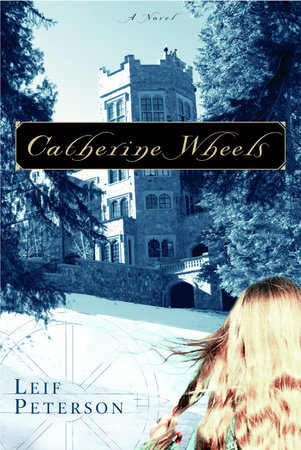Excerpt
Catherine Wheels
Prologue
In Spokane, we built our own field of dreams. My brother and I were living there the summer my mother died. I’d just finished my junior year at a small college nestled on the north end of town in an oasis of towering ponderosa pine. Normally I went home to Baltimore for summers and holidays, but that summer I decided to stay. I got a job at a sporting-goods store and joined the softball team it sponsored. Stephen painted houses. He’d just finished his first year at General Theological Seminary, but his fiancée, Mary, was in Spokane. We lived with our friend Perry Palmer in a little house in the heart of Dog Town.
We had a large, fenced backyard that was covered in landscaping bark. During the first weeks of summer, Perry converted the backyard into a Wiffle-ball field. He shoveled up the bark and hauled it away, then brought in sod for the infield. We laid the sod on a Saturday afternoon, cutting the pieces with a kitchen knife. Perry dug dirt from a flower bed at the front of the house and built a pitcher’s mound. He extended the fence posts and put up lights for night games.
Summer days in Spokane are hot and dry, the evenings long, and the nights cool and starry. After work we’d play Wiffle ball while a sprinkler on the neighbor’s lawn ticked back and forth. We’d play late into the evenings long after it got dark, the sound of the bat on the ball, plastic on plastic, hollow and sharp like exclamation marks.
But it was during a softball game that my mother died. I’d just hit a shot over the right fielder’s head. By the time he got to it, I was rounding second. It was an easy triple, but I thought I could stretch it into a home run.
I rounded third and glanced to right field where the fielder was winding up to throw home. He seemed to move in slow motion, part of another dimension. A gust of wind blew and kicked up clouds of dirt. The sound of the field was dampened, everything muted. Halfway down the third-base line, I had a vision of my mother. She was walking on a dark city street in a neighborhood she shouldn’t have been in. She was wearing a black cape, walking between parallel sidewalks toward a distant vanishing point. I got the distinct impression she was walking away from
me. I wanted to yell to her, but before I had the chance, she disappeared, enveloped in a fog.
I’ve often wondered if I made it safely home, but I have no memory of the rest of the game. That evening, Perry and I were in the backyard playing Wiffle ball when I thought of my mother again. She’d been scheduled for a minor surgery that day. It was so minor and so routine that I didn’t even remember what it was. Still feeling a little unsettled by the vision, I told Perry that I thought I should call home. I went inside, but before I could get to the phone, it rang.
I picked it up and listened as someone from my parents’ church tried to explain to me that my mother had not come out of the anesthesia. At first I thought she simply meant that my mother hadn’t yet woken up, and I couldn’t understand why she was calling. When it dawned on me that she was dead, the vision replayed itself–my mother on a dark street of an unfriendly city, dressed in black, walking away. I put the phone down without hanging up and looked around the room. All the furniture was mismatched and worn, typical college stuff, handed down, not bought. Outside it was getting dark. The rhythmic clicking of a sprinkler from the neighbor’s yard serrated the stillness of the night.
The back screen door opened and Perry came in. “What’s wrong?”
His voice was dull and matted; the air in the room gauzy.
“What’s wrong he repeated.”
“My mother died,” I said. “I need to find Stephen.”




